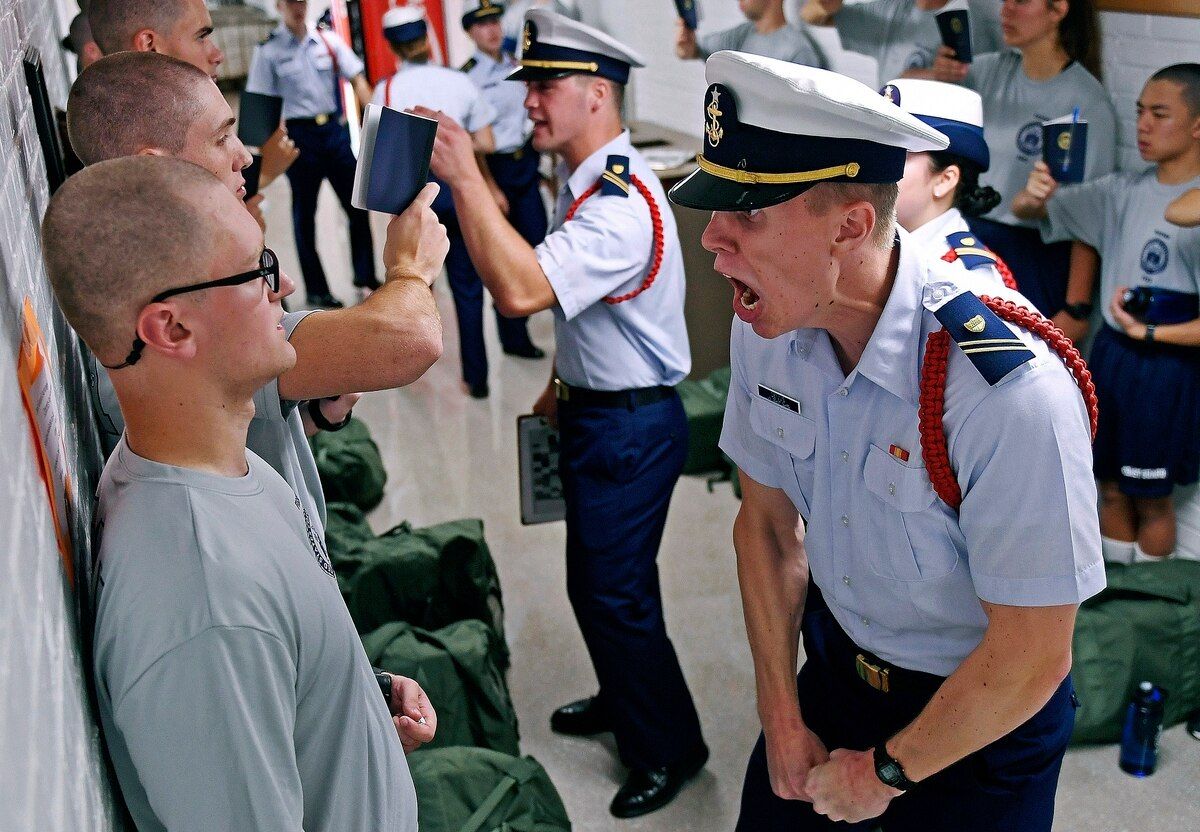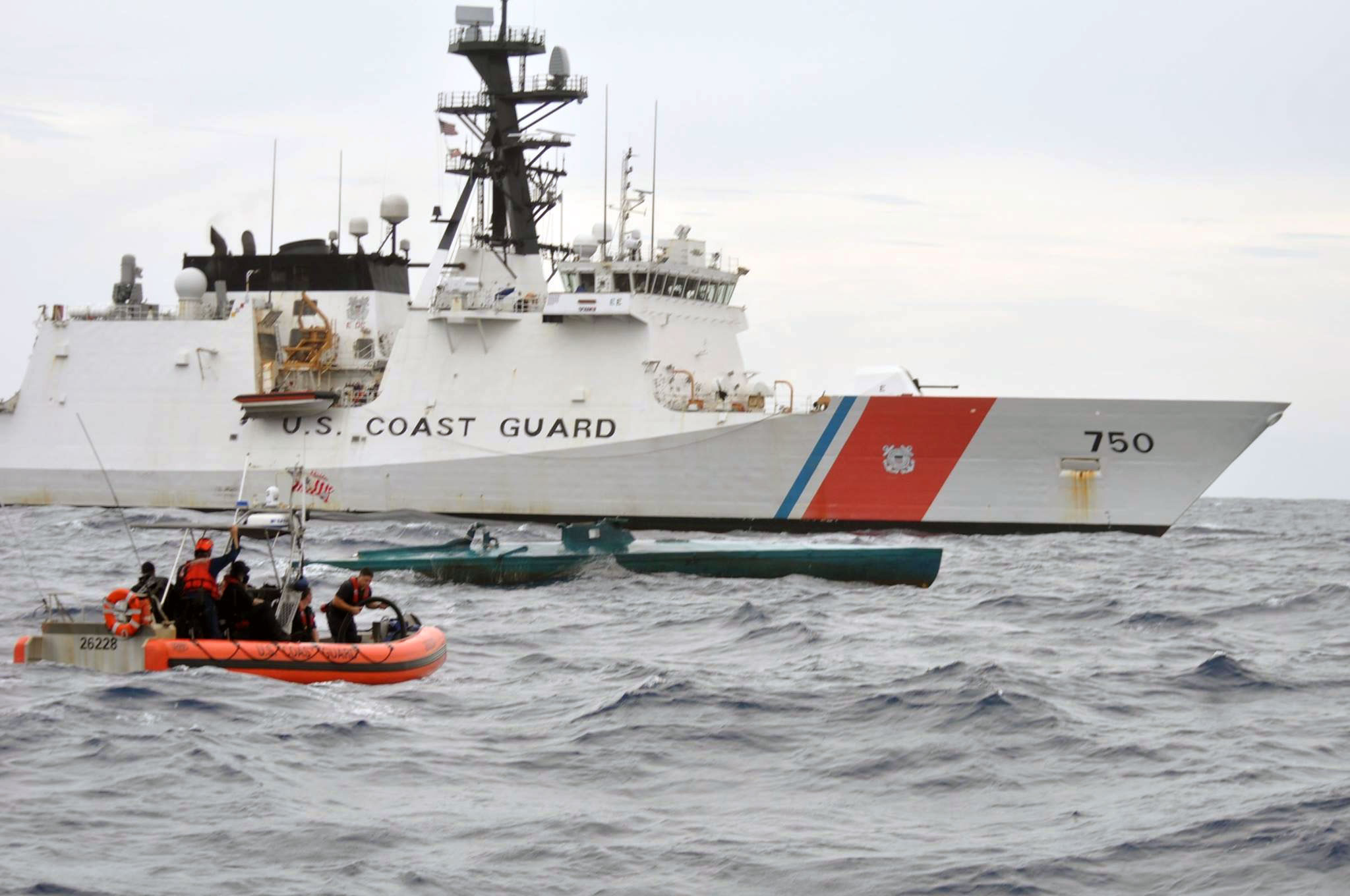How thinking long-term can improve how you manage in the short-term
A case study courtesy of the US Coast Guard.

There is a significant challenge that business leaders face when it comes to decision-making.
The urgency of what needs to be delivered and achieved in the short-term is often at the expense of thinking about and considering the longer-term future of the business.
Ironically executives are appointed to ensure the long-term sustainability and growth of an organisation, but then are also forced to deliver the goods to stakeholders on a quarterly basis.
With a gun against the head its obvious then that there is universally a bias towards selecting options that deliver short-term results within business leadership circles, with very little attention being paid to the future.
In a fascinating article by J. Peter Scoblic the value of futures thinking is demonstrated in a case study focusing on the US Coast Guard's “Project Evergreen” - a rigorous and inclusive scenario planning exercise that fully explored wildly-imagined alternative futures with the intention of significantly improving strategic planning in the present.
Why is the future ignored in business strategy?
One very good reason that business leaders avoid thinking about the future is that the future is uncertain.
'Why even bother because there is no way of preparing for what is unknowable!' - the argument goes
Dealing in the short-term is far less uncertain - there are more facts and data that can be understood and used to make informed operational decisions, which reinforces the bias towards short-termism (a preference for short-term thinking).
Typical 'business strategy' is then very rarely informed by futures thinking and proper strategic foresight. It's more accurate to label it as 'planning' than to call it 'strategy'.
As a consequence of this, business tends to fall prey to what former US Secretary of State, Dean Gooderham Acheson, called “the thundering present.”
The bad news is that the world and the future is becoming even more uncertain thanks to the accelerating speed of the advances in technology and the chaotic nature of our complex, interconnected societies.
How to manage the uncertain future better?
'...one answer is the practice of strategic foresight, specifically the imagination of alternative futures to better sense, shape, and adapt to emerging events. Strategic foresight methods, such as scenario planning, are intended to loosen participants’ assumptions and encourage the development of more robust strategies, thereby improving resilience to rapid change. Strategic foresight assumes a high degree of future uncertainty, and by providing structured methods for engaging with the uncertainty of the long term, it enables more constructive thinking about the long term, while simultaneously providing a mechanism for gleaning short-term insights. That is, it addresses how to think about the uncertainty of the long-term future while also acting in the present.'
CASE STUDY: How the US Coast Guard used strategic foresight to make them a better organisation

The US Coast Guard’s Project Evergreen—a cyclical scenario planning exercise—is useful to understand because this is a large organisation that is highly operational and it program of using strategic foresight as a pragmatic strategic tool demonstrates success in linking future thought to present action.
'When Admiral James Loy became commandant in 1998, he wanted to transform the Coast Guard’s culture from one of short-term reactivity to one that incorporated long-term strategy while retaining a high level of operational responsiveness.'
'That was where strategic foresight came in—specifically in the form of a scenario planning exercise dubbed Project Long View. Scenario planning is a disciplined method of imagining alternative futures so as to better sense, shape, and adapt to the emerging future. Or, as Loy put it, “Can you articulate half a dozen scenarios that are part of both your daily toil and your long-term future so you can define the capabilities and resources you will need to do what’s expected of you when the defecation is in the blades?'
'To facilitate the exercise, the Coast Guard hired The Futures Group, a strategic foresight consultancy, which worked with Loy’s Office of Strategic Analysis to draft scenarios set 20 years in the future—scenarios that were not meant to predict the future but rather to encompass the range of plausible futures.'
'To do this, the consultants led a team of Coast Guard personnel, who first considered forces of change that could have a significant but uncertain impact on the service’s future operating environment. Ultimately, they settled on four: the role of the federal government (limited or substantial), U.S. economic vitality (strong or weak), threats to U.S. society (low or high), and the demand for maritime services (low or high). Juxtaposing the values for these variables yielded 16 different combinations, of which five were selected as representing a diverse set of potential futures. These combinations were then translated into brief narratives—each given a name—expounding on what each world would look like and how it might come about. So, for example, “Balkanized America” described a world riven by regional and ethnic conflict, in which terrorists struck the United States frequently, and “Taking on Water” described a future in which the American economy struggled amid significant environmental degradation.'
'These scenarios then served as the basis for a series of workshops, where Coast Guard participants identified 10 “robust” strategies—i.e., strategies that could be pursued immediately and that would serve the organization well no matter how the future unfolded.'
'By generating plausible far-future scenarios and enabling strategic conversations about their implications, Long View and Evergreen showed Coast Guard personnel “how” to think about the future. As a former vice admiral said: “The whole idea behind Evergreen was to have some sort of structured way to address these difficult-to-get-your-hands-around uncertainties in the future.”51 The scenario planning exercises offered a “framework, a “tool,” and a “process” for grappling with the long-term future.'
The result?
'...by giving Coast Guard personnel a tool for how to engage the uncertainty of the long-term future, Long View and Evergreen increased how much they did so, despite persistent operational demands. This break with short-termism constituted an “inflection point” for the organization as one former Coast Guard executive put it.'
Futures thinking improved their current operations
'Thinking about the future is not a goal in and of itself. One key purpose of strategic foresight efforts is to enable better policy in the present, as Long View and Evergreen intended. But, as discussed earlier, organizations often see the two activities—future thought and present action—as being in tension even though they must do both. Admiral Thad Allen, who served as commandant from 2006 to 2010, put the matter bluntly:
'Interestingly, in the Coast Guard, instead of there being a trade-off between present and future, the two became complementary. As Evergreen managers and workshop participants returned to the field, resuming their operational responsibilities, they not only considered the future more, but they also layered their newfound future-oriented strategic sensibility onto the challenges they faced in their day-to-day work.'
So what?
In an increasingly uncertain world, strategy is just not enough. If the last couple of years have demonstrated anything useful to us, it's that surprises (Black Swans, Black Elephants and Black Jellyfish) will continue to make plans and strategy useless and a general waste of time and effort.
Strategic foresight, and the many tools a techniques that the discipline offers in its toolbox, is a proven way to manage uncertainty and complexity. Collaboratively imagining alternative futures and asking key 'What if' questions is the key to building an organisation that is prepared for the future - no matter how quickly that future might creep up on us.
'Imagination — the ability to generate alternatives, challenge assumptions and take the perspective of others — is a key strategic resource for navigating the uncertainty of the future. As the 9/11 Commission wrote in its assessment of the government’s failure to anticipate the 2001 terrorist attacks: “The most important failure was one of imagination.”'




